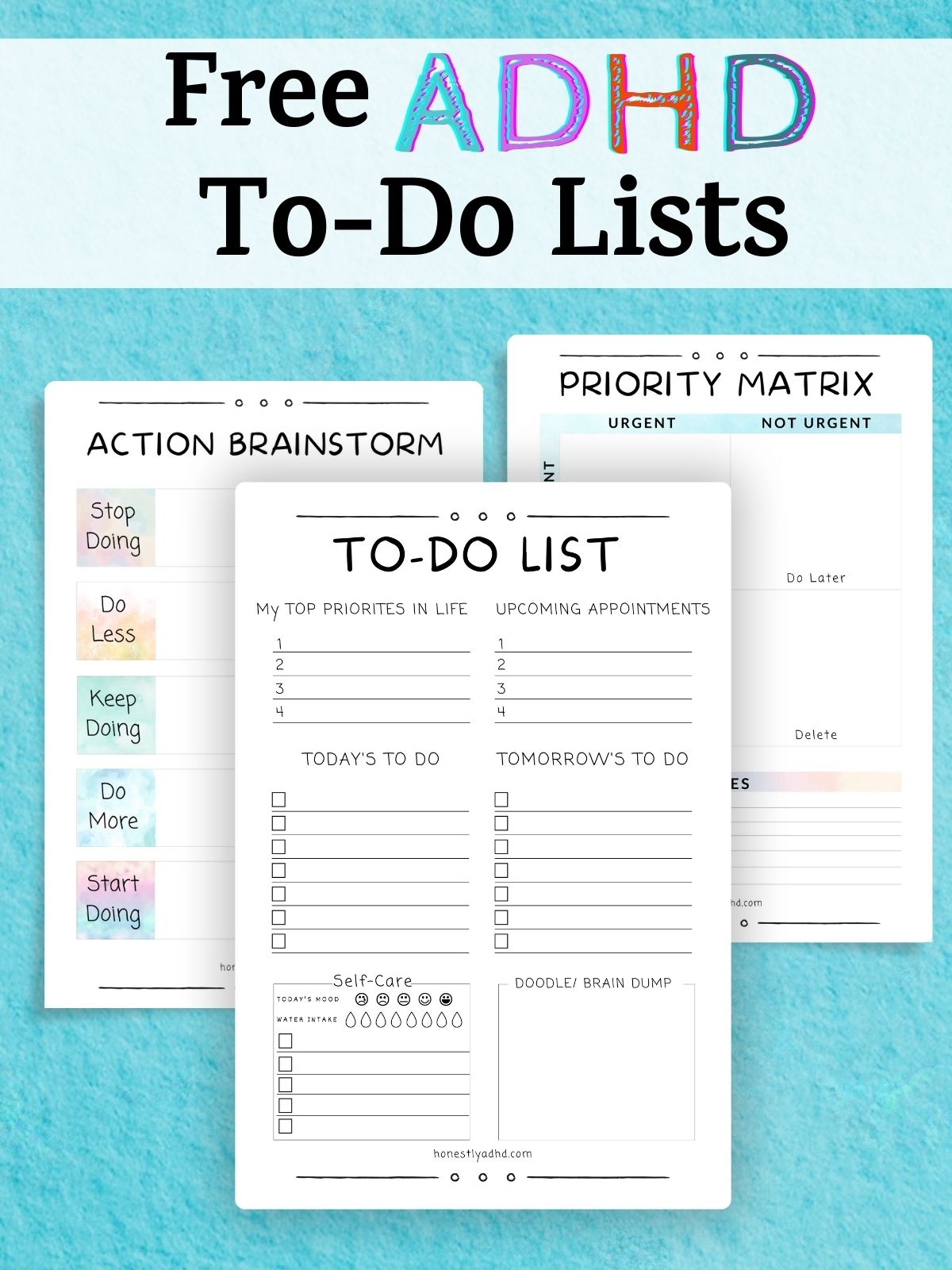Adult ADHD: Next Steps After Your Suspicion

Table of Contents
Understanding Your Symptoms and Seeking Professional Help
The first step in addressing your suspicions of Adult ADHD is a thorough self-assessment. While self-diagnosis is unreliable and should never replace professional evaluation, using validated questionnaires can help you articulate your experiences and provide valuable information for your healthcare provider. Consider using tools like the Adult ADHD Self-Report Scale (ASRS) or the Wender Utah Rating Scale (WURS). These questionnaires can help you identify patterns in your behavior and symptoms.
However, it's crucial to remember that only a qualified professional can diagnose Adult ADHD. Self-assessment tools are merely a starting point. A professional diagnosis is vital for accurate assessment and effective treatment planning.
- Documenting symptoms over time: Keep a detailed journal or log of your daily experiences, noting instances of inattention, hyperactivity, impulsivity, and any related challenges. This detailed record will be incredibly useful for your healthcare provider.
- Seeking professional help: Consult a psychiatrist, psychologist, or other qualified healthcare professional specializing in ADHD. These professionals are trained to conduct comprehensive evaluations and provide accurate diagnoses.
- Researching reputable professionals: Use online directories, recommendations from your primary care physician, or support groups to find professionals with experience in diagnosing and treating adult ADHD in your area.
- Preparing questions: Before your appointment, formulate a list of questions to ensure you gain the most valuable information from the consultation.
The Diagnostic Process for Adult ADHD
The diagnostic process for Adult ADHD involves a comprehensive evaluation to rule out other potential conditions with similar symptoms. It's a thorough process, not a quick fix.
- Detailed history taking: Your healthcare provider will conduct a detailed interview, exploring your childhood and adult behaviors, including academic performance, work history, and social relationships. They'll specifically look for persistent patterns of inattention, hyperactivity, and impulsivity.
- Behavioral assessments: Rating scales and questionnaires, like those mentioned previously, provide standardized measurements of your symptoms. These help quantify the severity and impact of your challenges.
- Neuropsychological testing: In some cases, neuropsychological testing may be recommended to assess cognitive functions, rule out other neurological conditions, and gain a clearer understanding of your strengths and weaknesses.
- Review of medical and psychiatric history: A complete review of your medical and psychiatric history is essential to rule out other conditions that could contribute to your symptoms.
Treatment Options for Adult ADHD
Once diagnosed, your healthcare provider will work with you to develop a personalized treatment plan tailored to your specific needs and preferences. Treatment options for Adult ADHD may include a combination of approaches:
- Medication: Stimulant and non-stimulant medications can help manage ADHD symptoms, improving focus, concentration, and impulse control. The choice of medication and dosage will depend on individual factors.
- Therapy: Cognitive-behavioral therapy (CBT) and other therapeutic approaches can help develop coping mechanisms, improve self-esteem, and enhance organizational skills. Coaching can also be incredibly beneficial.
- Lifestyle changes: Implementing lifestyle changes like regular exercise, a balanced diet, and improved sleep hygiene can significantly impact symptom management.
- Support groups: Connecting with others who understand your experiences can provide emotional support, practical advice, and a sense of community.
Navigating the Healthcare System and Insurance Coverage
Navigating the healthcare system can be challenging, especially regarding insurance coverage for ADHD treatment. Here's how to approach this aspect:
- Understanding your insurance policy: Carefully review your insurance policy to understand your coverage for ADHD diagnosis, medication, and therapy. Note any pre-authorization requirements.
- Exploring cost-reduction options: Inquire about options such as generic medications, telehealth services, or sliding-scale fees offered by therapists.
- Financial assistance programs: Research financial assistance programs and support organizations that offer assistance with healthcare costs for those who qualify.
- Advocating for yourself: Don't hesitate to advocate for yourself when interacting with insurance providers. Keep detailed records of all communications and be prepared to appeal decisions if necessary.
Taking the Next Steps with Adult ADHD
Suspecting you have Adult ADHD is the first crucial step. This article has highlighted the importance of seeking professional help for a proper diagnosis, understanding the diagnostic process, exploring diverse treatment options, and effectively navigating the healthcare system. Remember, self-diagnosis is unreliable, and professional guidance is essential for effective management. Don't let uncertainty hold you back. Proactive steps towards understanding and managing your symptoms can significantly improve your quality of life.
Suspecting you have Adult ADHD? Don't delay, take the next step towards a better understanding and potential treatment by seeking a professional evaluation. Your journey towards managing Adult ADHD begins with this crucial first step. [Link to a reputable resource for finding ADHD specialists] [Link to information on ADHD support groups]

Featured Posts
-
 Convicted Cardinal Claims Right To Participate In Papal Conclave
Apr 29, 2025
Convicted Cardinal Claims Right To Participate In Papal Conclave
Apr 29, 2025 -
 The Many Faces Of Jeff Goldblum A Look At His Diverse Roles
Apr 29, 2025
The Many Faces Of Jeff Goldblum A Look At His Diverse Roles
Apr 29, 2025 -
 Fhi Adhd Medisinens Begrensede Effekt Pa Skoleprestasjoner
Apr 29, 2025
Fhi Adhd Medisinens Begrensede Effekt Pa Skoleprestasjoner
Apr 29, 2025 -
 Fussball Austria Wien Jancker Ist Der Neue Trainer
Apr 29, 2025
Fussball Austria Wien Jancker Ist Der Neue Trainer
Apr 29, 2025 -
 Your Guide To Capital Summertime Ball 2025 Tickets Braintree And Witham
Apr 29, 2025
Your Guide To Capital Summertime Ball 2025 Tickets Braintree And Witham
Apr 29, 2025
Latest Posts
-
 Vidstan Mizh Trampom Ta Zelenskim Analiz Politichnikh Signaliv
Apr 30, 2025
Vidstan Mizh Trampom Ta Zelenskim Analiz Politichnikh Signaliv
Apr 30, 2025 -
 I Kideia Toy Papa Fragkiskoy Poioi Itan Parontes Kai Giati
Apr 30, 2025
I Kideia Toy Papa Fragkiskoy Poioi Itan Parontes Kai Giati
Apr 30, 2025 -
 Seating Plans For Papal Funerals Considerations And Challenges
Apr 30, 2025
Seating Plans For Papal Funerals Considerations And Challenges
Apr 30, 2025 -
 Les Complexites Du Plan De Placement Lors Des Funerailles D Un Pape
Apr 30, 2025
Les Complexites Du Plan De Placement Lors Des Funerailles D Un Pape
Apr 30, 2025 -
 Zustrich Trampa Ta Zelenskogo Detali Rozsadzhennya Ta Yikhnye Znachennya
Apr 30, 2025
Zustrich Trampa Ta Zelenskogo Detali Rozsadzhennya Ta Yikhnye Znachennya
Apr 30, 2025
